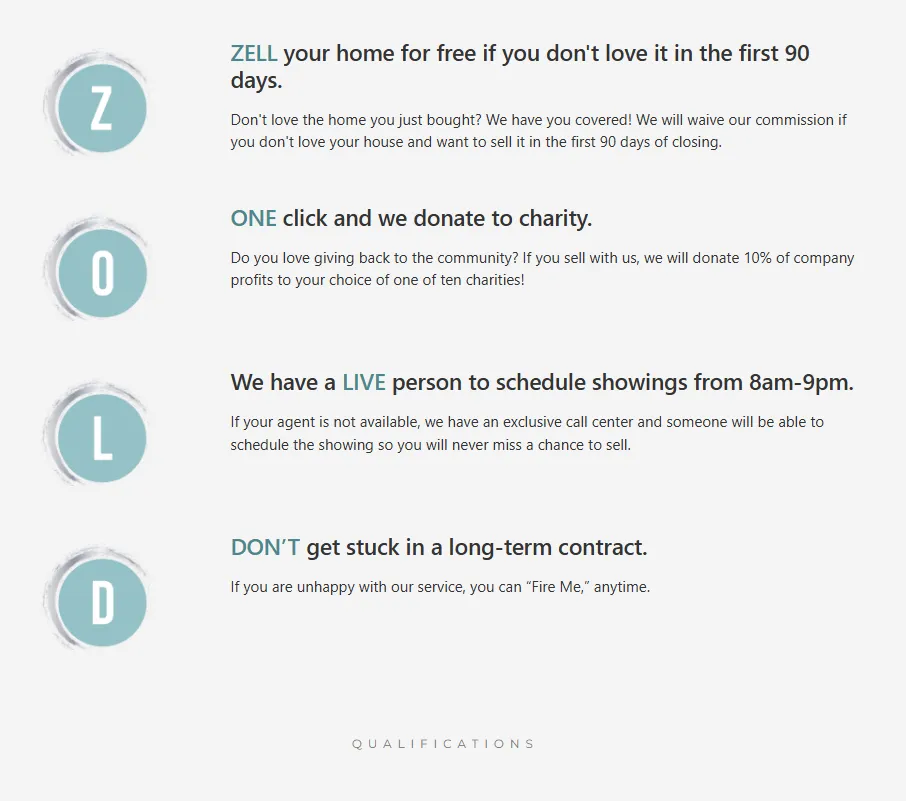
GET YOUR HOME SOLD FASTER AND FOR TOP DOLLAR
or give us a call and ask for a Canzell Certified Agent
$500 Advanced Real Estate Course:
FREE for anyone who attended eXpCon. Code is: exp
HOW TO DOUBLE YOUR REAL ESTATE BUSINESS
Learn How Chantel Ray Scaled Her Business:
Closed 1500 Homes a year
______________________________________________
Dominated a Local Area
______________________________________________
Created Teams in Over 20 States
MARKETING
HEALTH
WEALTH BUILDING
REAL ESTATE

Chantel's Promise
My promise is to put our client’s interests above my own. I’ve created 3 pillars that define the core of this promise Health, Wealth, and Wisdom.

Gain access to Chantel Ray’s Buyer Guide for all the latest tips to follow when buying a new home.

Selling your home? Download our Seller’s Guide for insight on how to get the best value for your home.
Health, Wealth, and Wisdom
Well known for combining spirituality, faith, mindset , health, and godly wisdom
and actions to help people produce real changes in their lives. Discover how to achieve your full potential utilizing Chantel Ray’s 3 Pillars of Success.
Diet & Exercise
Chantel Ray Way Podcast
Wellness Books
Buy/Sell Real Estate
Become an Agent
Wealth Groups
Coaching
Speaking
Bible Studies
Non Toxic Family Podcast
Chantel Ray Way Podcast
Family Fasting
BUILD A LIFE THAT CREATES TIME FOR YOU AND YOUR FAMILY
How to LEAD, DELEGATE & Become a TIME Millionaire. Order your book today! Start your journey to becoming a time millionaire!






GET ALL 4 BOOKS IN
E-BOOK AND AUDIOBOOK IN ONE BUNDLE!
FOR ONLY $39.99
(Workbook is the only one not included in audiobook.)

A Note From Chantel Ray
“I’ve come to realize the importance of maintaining a balance between health, wealth, and wisdom. They each play a crucial role in our overall well-being, working towards fulfillment and growth.
Health reminds us to prioritize self-care, while wealth extends beyond material riches, through experiences and relationships. Wisdom, gained through life’s experiences, guides us to understanding.”

Discover Chantel's Personal Story
See what's trending on Chantel Ray's Instagram
@TheChantelRay
CHANTEL RAY WAY
PODCAST
Over 4 Million+ Views | 400+ Episodes
Best Selling Books
Written by Chantel Ray

Waist Away
The secrets in this book were first proven to be successful by Chantel Ray herself. She then shared her success with friends and family and became an instant hit. Now her secret is going viral.

One Meal & A Tasting
When you order Chantel ray’s new book “One Meal and a Tasting” on Amazon you will receive FREE entry into the next One Meal and a Tasting Masterclass Session.

Fasting to Freedom
Experience supernatural healing, overcome difficult times, receive provision and live in abundance, live under the shelter of God’s protection, and to finally break free from that sin that has you in a choke hold.

Freedom from Food
This 6 week Bible Study uses scripture to teach you to: overcome the temptation of food, avoid gluttony and overeating, understand when your body is truly physically hungry, develop a deeper more meaningful relationship with Christ.
VIDEOS







